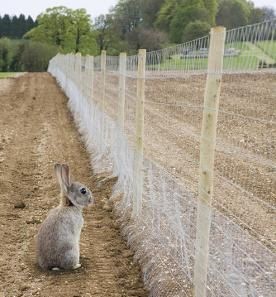Animal Repellents
Did you know that capturing and relocating animals is illegal in Massachusetts? While it is a common practice, it is illegal and detrimental for a number of reasons. The chances are good that the animal is not familiar with the area that you are relocating them too, causing them and the animals in the new area distress. If the animal is diseased, transporting that animal can transmit the disease to you or other animals. Lastly, removing the animal from your property does not address the issue, as new species will move in, further disrupting ecological processes.
Fortunately, there are several other solutions that the Essex County Co-Op sells to alleviate animal issues. Repels-All Animal Repellent by Bonide is a common animal repellent that comes in both granular, concentrate, and ready-to-use formula. This product repels by using putrescent egg solids, garlic oil, and cloves, which cause irritation to the skin, eyes, and nose. When used as directed, Repels-All is people and pet safe, and repels more than a dozen animal species. In our area, this product is commonly used to repel rabbits, chipmunks, deer, and squirrels, and woodchucks. Additionally, Bonide Rat Magic and Bonide Mouse Magic are popular products to repel small, troublesome rodents. These come in both a granular and self-containing sachet form, and use essential oils to repel.
Do you have a problem with birds? There are several solutions to that, as well. The Co-Op stocks a variety of bird repellents, such as inflatable scare balloons and flash tape. There are also hawk and owl decoys that can be used to repel birds with the added benefit of repelling small creatures, such as mice. If the birds are on areas of a building that you do not desire them to be, Bird-B-Gone Bird Repelling Spikes and Bird-B-Gone Transparent Bird Gel are options.
Applying predator urine is a common technique that allows one to create an invisible fence around a property. In order to be effective, one must apply a urine of an animal larger than the nuisance animal. By outlining the area in urine, animals are repelled by thinking that the area is another animal’s territory. The Co-Op sells fox, coyote, and bobcat urine, all of which can be used in urine dispensers or applied directly to surfaces, such as trees bare ground. It is not advisable to put this on grass, as it could burn. It is most commonly used through scent dispensers which hang on stakes and are placed every 25 feet.
If repellents are not enough, the Essex County Co-Op has several fencing options that may be effective. Mesh fencing is a common technique used to deter animals. To properly fence, one must get the correct height wire, and wire that has the correct size openings. Otherwise, the animals will be able to navigate around the fencing. If fencing for rabbits, it is wise to run the fencing six inches into the ground to ensure they cannot dig underneath it. Additionally, the supports for the fencing need to be placed at appropriate intervals, which is generally between five and eight feet. These supports need to be sturdy enough to support the fence and be deep enough into the ground to effectively do so. Common fence types to deter animals are chicken wire and welded wire fencing. These come in a variety of heights and opening sizes. This style of fencing can be supported by hardwood stakes, u-posts, or t-posts. U-posts and t-posts are metal and have hooks to allow for better fencing attachment.
 If you prefer an
approach that packs a greater punch, fencing your area with electric fencing is
also an option. Electric fence can be attached to a variety of insulated
supports, including step-in posts, wood posts, or fiberglass posts (some of
which require insulators). Several styles of electrification can also be used,
two of which are electric tape and electric wire. Electric fencing requires a
charger, and the Co-Op sells a number of Patriot and Gallagher branded fencers.
These fencers can fence different lengths of fencing, and are either solar or plug
in.
If you prefer an
approach that packs a greater punch, fencing your area with electric fencing is
also an option. Electric fence can be attached to a variety of insulated
supports, including step-in posts, wood posts, or fiberglass posts (some of
which require insulators). Several styles of electrification can also be used,
two of which are electric tape and electric wire. Electric fencing requires a
charger, and the Co-Op sells a number of Patriot and Gallagher branded fencers.
These fencers can fence different lengths of fencing, and are either solar or plug
in.
A common technique to repelling animals by using electric fencing is by installing a ‘hotwire’ of electrified fencing close to the ground. Depending on the animal that is being repelled, more fencing is then run at animal-specific intervals above the ‘hotwire’. For example, if fencing for rabbits, a ground-level wire is run, followed by wires every four inches.
There are many ways to keep critters out and the Essex County Co-Op has all of the solutions and advice you might need. Stop in to chat with us next time you are in the area!


